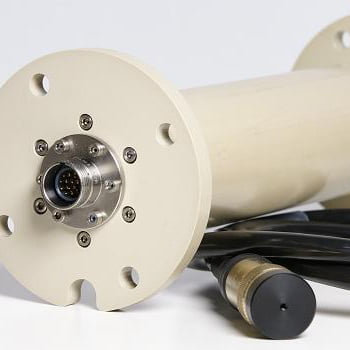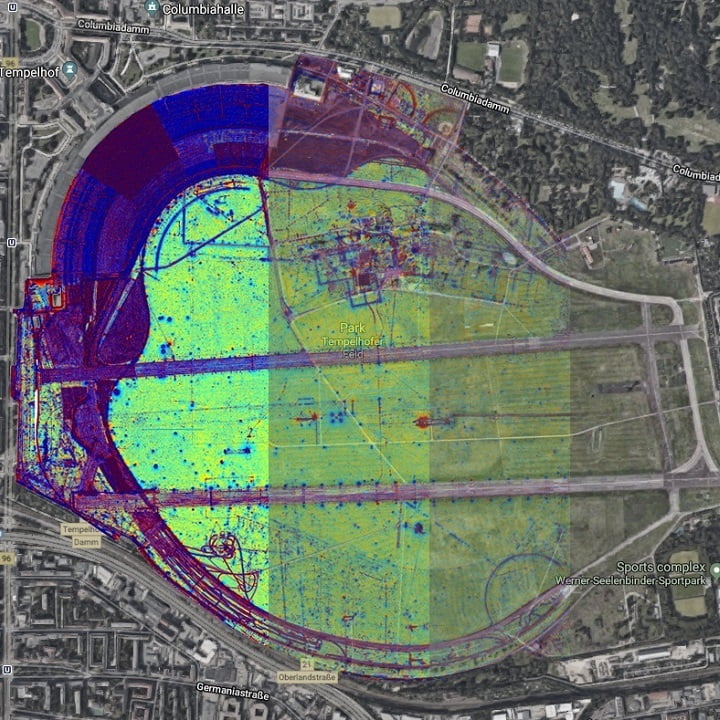General terms & conditions
We at SENSYS take the protection of your personal information very seriously and adhere strictly to the stipulations of data protection legislation. Personal data is only collected to the extent technically required on this website. The data collected will never be sold or released to third parties for any reason under any circumstances. The following declaration gives you an overview of how we guarantee this protection and which type of data is collected for which purpose.
Responsible Party
SENSYS – Sensorik & Systemtechnologie GmbH
Rabenfelde 5
15526 Bad Saarow, GERMANY
Phone: +49 33631 59 650
Email: info@sensys.de
Our data protection manager can be reached as follows:
SENSYS – Sensorik & Systemtechnologie GmbH
Data Protection Management
Rabenfelde 5
15526 Bad Saarow, GERMANY
Phone: +49 33631 59 650
Email: info@sensys.de
For any questions and feedback, please contact us at any time.
Personal data
Personal data means any information relating to an identified or identifiable individual; an identifiable person is one who can be identified, directly or indirectly, in particular by reference to an identification number (e.g. social security number) or one or more factors specific to his physical, physiological, mental, economic, cultural or social identity (e.g. name and first name, date of birth, biometrics data, fingerprints, DNA…).
Change your Privacy and Cookie Settings here:
Cookie SettingsData processing on this website
SENSYS automatically collects and stores information in its server log files which your browser sends to us. This includes:
- Browser type/version
- Operating system used
- Referrer URL (site visited previously)
- Host name of the accessing computer (IP address)
- Time of server query
SENSYS cannot attribute this data to any specific person. This data is not merged with other data sources and is deleted after a statistical analysis.
Limited liability
The content of our website has been compiled with meticulous care and to the best of our knowledge. However, we cannot assume any liability for the up-to-dateness, completeness or accuracy of any of the pages. Pursuant to section 7, para. 1 of the TMG (Telemediengesetz – Tele Media Act by German law), we as service providers are liable for our own content on these pages in accordance with general laws. However, pursuant to sections 8 to 10 of the TMG, we as service providers are not under obligation to monitor external information provided or stored on our website. Once we have become aware of a specific infringement of the law, we will immediately remove the content in question. Any liability concerning this matter can only be assumed from the point in time at which the infringement becomes known to us.
Our website contains links to the websites of third parties (“external links”). As the content of these websites is not under our control, we cannot assume any liability for such external content. In all cases, the provider of information of the linked websites is liable for the content and accuracy of the information provided. At the point in time when the links were placed, no infringements of the law were recognisable to us. As soon as an infringement of the law becomes known to us, we will immediately remove the link in question.
Data submission on the website
The SENSYS website allows to get in contact with us using a contact form which requires the following mandatory information:
- First name
- Surname
- Industry
- Position
- Address
- E-Mail address
We don’t disclose personal data to any third party.
Cookies
On our website we use so-called cookies (text files which are stored through your visit to a Web page on the user’s computer) that allow us to make your use of our website as enjoyable and efficient as possible. Cookies are small data packets generated by our web server and your computer in communication with the Web server and are stored on the permanent memory (hard drive, memory etc.) of your device (computer, smart phone, tablet, or the like).
We use both our own cookies and cookies from other suppliers (so-called third-party cookies). When using third-party cookies data is collected, processed and used by the respective provider. On our web site, third-party cookies can be used. If you do not want to allow this, you may not only make use of your general right of objection regarding the use of any cookies, but also – without prejudice to – make use of the special rights of objection regarding the use of the various third-party cookies.
Avoidance of Cookies / General Right of Objection:
Of course, you can object to the use of our cookies and also the third-party cookies at any time, by setting your browser to not accept cookies. For details of this, please refer to the help function of your internet browser. However, we would like to point out that we cannot rule out that some features of our website will not be (fully) available.
Session Cookies / Persistent Cookies:
We use session cookies. With a webshop, for example, this allows for a cross-page shopping cart screen where you can see how many articles are currently in your shopping cart. Session cookies are deleted when you close the browser again.
In addition, the use of persistent cookies is possible to enable us, for example, to store your login information if you – as is the case in particular for online products – only select individual web offers after registration with your user name and password. Then, persistent cookies enable in particular that you can access your data that you already entered, and settings you made if a web page is newly selected. Persistent cookies are stored, therefore, for a limited period and, in particular, serve to make our website more user-friendly, effective and more secure.
Newsletter
If you would like to receive the newsletter mentioned on the website, we need a valid e-mail address from you, and also information that allow us to verify that you are the owner of the specified email address or that its owner agrees to receive the newsletter. No other data is collected. You can withdraw your consent to the storage of this data, the e-mail address and its use for receipt of the newsletter.
Google Analytics
Our website uses Google Analytics, a web analysis service from Google Inc. (“Google”). Google Analytics uses so-called ‘cookies’ – text files that are saved on your computer and that enable your use of the website to be analysed. The information that is generated by the cookie regarding your use of this website (including your IP address) is transmitted to a Google server in the USA, where it is saved. Google will use this information to analyse your use of the website, compile reports on your website activities for the website operator, and provide additional services associated with the use of the website and use of the Internet.
Google may also pass this information on to third parties where this is required by law or third parties are processing this data on behalf of Google. Google will not under any circumstances link your IP address with other data from Google. It is possible to prevent cookies being installed by configuring the relevant setting in your browser software; however, it should be noted that, should you do so, you may be unable to make full use of all functions of this website as a result. Through the use of this website, you express your consent to the processing of data collected by Google about you in the manner described above and for the purpose previously stated.
You can furthermore prevent the recording of the data relating to your use of the website (including your IP address) created by the cookie and also prevent it from being processed by Google by downloading and installing the browser plug-in available from the following link. The current link is https://tools.google.com/dlpage/gaoptout?hl=de.
Social Networks
Our internet offer also integrates browser plugins and links to social networks (e.g. Facebook, XING, Google Plus, LinkedIn, Twitter). These social networks are operated solely by third parties which have their registered office, in part, outside of the EU or the EEA – an adequate level of data protection acc. to § § 4b, 4c BDSG may, therefore, not exist. The browser plugins and links are indicated by logos or other notices in our web offerings. When you visit our web pages which contain such a browser plugin, a connection will be automatically established between your device (browser) and the server of the respective social network. In doing so, the information that you have visited our web page will be forwarded to the social network. The visit to our web pages will then be associated with your account if you are logged on to your user account of the social network or log in while on our web pages. By interacting with browser plugins or links, e.g. by pressing a “Like” button or leaving a comment, this information will be transmitted to the respective social network and stored there. The assignment of the data to your account may be prevented logging out from your account (of the respective social network) before visiting our web pages. (https://noscript.net/).
Please find purpose and scope of data collection through social networks and the local further processing and use of your data as well as your rights in this respect and settings options for protecting your privacy in the respective Privacy Statements of the operators:
https://www.facebook.com/policy.php
Facebook Inc., 1601 Willow Road, Nelo Park, CA 94025, USA
httpss://www.xing.com/privacy
XING AG, Dammtorstraße 29-32, 20354 Hamburg, Deutschland
https://www.linkedin.com/legal/privacy-policy
LinkedIn Corporation, 2029 Stierlin Court, Mountain View, CA 94043, USA
https://twitter.com/privacy/
Twitter Inc., 1355 Market Street, Suite 900, San Francisco, CA 94103, USA
YouTube
httpss://www.google.de/intl/de/policies/privacy
YouTube, LLC, 901 Cherry Ave., San Bruno, CA 94066, USA
Our website uses Plug-ins of the YouTube site operated by Google. If you visit one of our pages equipped with a YouTube Plug-in, a connection is made with the YouTube servers. The YouTube server is then informed which of our pages you have visited.
If you are logged into your YouTube account, you enable YouTube to directly associate your surfing activity to your personal profile. You can prevent this by logging out of your YouTube account.
Customers and partners
We use your personal data in the way as described in this Data Privacy Policy, in order to make our services available, to respond to your enquiries, and to the extent it is legally permissible or required or to assist in legal or criminal investigations. We can further anonymise and aggregate data gathered via this website for statistical purposes to expand our product portfolio and improve our services.
Legal basis for the processing of personal data
Insofar as we obtain a declaration of consent from the data subject for the processing of personal data, Art. 6 (1) lit. a) EU General Data Protection Regulation (GDPR) applies as the legal basis for the processing of personal data.
In the processing of personal data that is required for the fulfilment of a contract to which the data subject is a party, Art. 6 (1) lit. b) GDPR serves as the legal basis. This also applies to processing that is required to conduct pre-contractual measures.
Where processing of personal data is required for the fulfilment of a legal obligation imposed on our company, Art. 6 (1) lit. c) GDPR serves as the legal basis.
In the case that vital interests of the data subjects or another natural person necessitate the processing of personal data, Art. 6 (1) lit. d) GDPR serves as the legal basis.
If the processing serves to protect a justified interest of our company or of a third party and if the interests, civil rights and fundamental freedoms of the data subject do not outweigh the interest mentioned first, Art. 6 (1) lit. f) GDPR serves as the legal basis for the processing.
With whom do we share your personal data?
Within our company, only those people are receiving your data who need them to fulfil contractual or legal duties or perform services and support.
Data deletion and period of storage
The personal data of the data subjects will be deleted or blocked as soon as the purpose for storing it ceases to apply. Storing can also take place beyond this point in time if this has been provided by the European or national legislator in directives, laws and other regulations under EU law, which apply to the data controller. The data will also be blocked or deleted when a storage period expires that is prescribed by said standards, unless there is a necessity for the continued storage of the data for a contract conclusion or contract fulfilment.
Personal rights
If personal data of you is processed, you are a data subject in the definition of the GDPR and you have the rights listed below in relation to the data controller.
You can claim your rights at any time at httpss://app-de.onetrust.com/app/#/webform/0a22d30e-5874-4513-953f-3079967f561b.
Right to information
You can demand a confirmation from the data controller of whether personal data relating to you is being processed by us.
If such processing applies, you can demand information from the data controller regarding the following aspects:
- the purposes for which the personal data is processed;
- the categories of personal data that is processed;
- the recipients or categories of recipients to whom personal data relating to you has been disclosed or will be disclosed in the future;
- the planned duration of the storing of the personal data relating to you or, if this cannot be specified concretely, the criteria for determining the storage duration;
- applicability of a right to correction or deletion of the personal data relating to you, a right to restrict the processing by the data controller or a right to object to this processing;
- applicability of a right to complain with a supervisory authority;
- all available information on the origin of the data if the personal data has not been gathered from the data subject;
- applicability of an automated decision-making process including profiling according to Art. 22 (1) and (4) GDPR and – at least in these cases – explanatory information about the involved logic and scope, as well as the intended effects for the data subject from such processing.
You have the right to demand information of whether the personal data relating to you is being transmitted to a third country or an international organisation. In this connection, you can request being informed about the suitable guarantees according to Art. 46 GDPR relating to the transmission.
Right to correction
You have a right to the correction and/or completion in relation to the data controller, insofar as the processed personal data relating to you is incorrect or incomplete. The data controller has to make the correction without delay.
Right to limit the processing
On the following conditions, you can request the limitation of the processing of personal data relating to you:
- if you deny the correctness of the personal data relating to you for a period that enables the data controller to check the correctness of the personal data;
- the processing is illegitimate and you reject the deletion of the personal data, and instead request the limitation of the use of the personal data;
- the data controller no longer needs the personal data for the purposes of the processing, but you require it for the assertion, exercise or defence of legal claims; or
- if you have raised an objection against the processing according to Art. 1 GDPR and if it is not certain yet if the justified interests of the data controller outweigh your reasons.
If the processing of the personal data relating to you has been limited, this data may be processed – other than for storing – only with your consent or only to assert, exercise or defend legal claims or to protect the rights of another natural person or legal entity, or for reasons of a compelling public interest of the European Union or of a Member State.
If the limitation of the processing has been applied according to the aforementioned conditions, you will be informed by the data controller before the limitation is lifted.
Obligation for deletion
You can demand from the data controller that the personal data relating to you is to be deleted immediately and the data controller will be obligated to delete this data immediately if one of the following reasons applies:
- The personal data relating to you is no longer required for the purposes for which it has been gathered or otherwise processed.
- You revoke your consent that served as the basis for the processing according to Art. 6 (1) lit. a) or Art. 9 (2) lit. a) GDPR and there is no other legal basis for the processing.
- You raise an objection according to Art. 21 (1) GDPR against the processing and there are no outweighing justified reasons for the processing, or you object to the processing according to Art. 21 (2) GDPR.
- The personal data relating to you is processed illegitimately.
- The deletion of the personal data relating to you is required to fulfil a legal obligation according to EU law or the laws of the Member States that apply to the data controller.
- The personal data relating to you has been gathered with regard to offered services of the information society according to Art. 8 (1) GDPR.
Information to third parties
If the data controller has made the personal data relating to you publicly accessible and if it is obligated to delete it according to Art. 17 (1) GDPR, it will take appropriate measures, also of technical nature, in consideration of the available technology and implementation costs, in order to inform the parties, who are responsible for the data processing and who process the personal data, of the fact that you, as the data subject, have requested them to delete all links to this personal data or copies or replications of this personal data.
Exceptions
The right to deletion does not apply if the processing is required
- to exercise the right to free speech and information;
- to fulfil a legal obligation that applies to the processing pursuant to EU law or the laws of the Member States that apply to data controller, or to fulfil a task in the public interest or in exercise of public power that has been delegated to the data controller;
- for reasons of the public interest in matters of public health according to Art. 9 (2) lit. h) and i) as well as Art. 9 (3) GDPR;
- for archiving purposes that are in the public interest, for scientific or historic research purposes or for statistical purposes according to Art. 89 (1) GDPR, insofar as the right referred to under Section a) is expected to render the realisation of the processing objectives impossible or obstructs it to significant extent; or
- for the assertion, exercise or defence of legal claims.
Right to information
If you have asserted the right to the correction, deletion or limitation of the processing against the data controller, it will be obligated to inform all recipients to whom personal data relating to you has been disclosed of this correction or deletion of this data or the limitation of the processing, unless this proves to be impossible or if such is tied to disproportionate effort or expense.
You have the right in relation to the data controller to be informed of these recipients.
Right to data portability
You have the right to receive the personal data relating to you that you have made available to the data controller in a structured, common and machine-readable format. You have furthermore the right to transmit this data to another data controller without obstruction by the data controller to whom the personal data has been made available, insofar as
- the processing is based on a consent according to Art. 6 (1) lit. a) GDPR or Art. 9 (2) lit. a) GDPR or a contract according to Art. 6 (1) lit. b) GDPR, and
- the processing takes place by means of automated processes.
In exercise of this right, you moreover have the right to effect that the personal data relating to you is transmitted directly from one data controller to another data controller insofar as this is technically practicable. Freedoms and rights of other persons must not be impaired thereby.
The right to data portability does not apply to the processing of personal data that is required to fulfil a task in the public interest or in exercise of public power that has been delegated to the data controller.
Right to object
You have the right to object at any time, for reasons that result from your particular situation, to the processing of the personal data relating to you that takes place on the basis of Art. 6 (1) lit. e) or lit. f) GDPR; this also applies to profiling based on these provisions.
The data controller will cease the processing of the personal data relating to you, unless it can prove compelling reasons for the processing that qualify for protection and which outweigh your interests, rights and freedoms, or if the processing serves the purpose of asserting, exercising or defending against legal claims.
If the personal data relating to you is processed to operate direct marketing, you have the right to object at any time to the processing of the personal data relating to you for the purpose of such advertising; this also applies to profiling if it is connected to such direct marketing.
If you object to the processing for the purposes of direct marketing, the personal data relating to you will no longer be processed for these purposes.
You have the option to exercise your right to object in connection with the use of the services of the information society – notwithstanding Directive 2002/58/EC – by means of automated procedures, in which technical specifications are used.
Right to revoke the consent according to data protection laws
You have the right to revoke your consent according to data protection laws at any time. The legitimacy of the processing that has taken place up until your objection will not be affected by the revocation of the consent.
Automated decision in the individual case including profiling
You have the right not to be subjected to a decision that is exclusively based on automated processing – including profiling – which develops legal effect in relation to you or which causes similar significant obstructions for you. This does not apply if the decision
- is required for the conclusion or the fulfilment of a contract concluded between you and the data controller;
- is permissible based on the legal regulations of the EU or the Member States that apply to the data controller and if these legal regulations contain appropriate measures to protect your rights and freedoms as well as your justified interests; or
- is made with your explicit agreement.
However, these decisions may not be based on special categories of personal data pursuant to Art. 9 (1) GDPR, unless Art. 9 (2) lit. a) or lit. g) applies and appropriate measures for the protection of rights and freedoms as well as your justified interests have been taken.
Regarding the cases referred to in (1) and (3), the data controller will take appropriate measures to protect rights and freedoms as well as your justified interests, which includes at least the right of a person of [sic] the data controller to take influence, to present own standpoints and to challenge the decision.
Right to complain with a supervisory authority
Without prejudice to other administrative or in-court appeal, you have the right to complain with a supervisory authority, in particular in the Member State of your domicile, your workplace or the place of the suspected violation if you believe that the processing of personal data relating to you violates the GDPR.
The supervisory authority with which complaint has been filed will inform the complainant of the status and the results of the complaint including the possibility of appeal in court pursuant to Art. 78 GDPR.
Report of data breaches
Data breaches can be reported at any time under info@sensys.de.
A data breach means a breach of security that leads to the accidental or illegal destruction, loss or modification, unauthorised disclosure or unauthorised access of personal data, which is transmitted, stored or otherwise processed by SENSYS or a third party contracted by it.
Minors
Persons younger than 18 years of age should not transmit any personal data without the agreement of their parents or legal guardians. According to Art. 8 GDPR, children aged 16 years or younger can declare such consents only with the agreement of their parents or legal guardians. Personal data of minors is not knowingly gathered and processed.
Correctness and validity of this Data Privacy Policy
SENSYS reserves adjusting this Data Privacy Policy at any time and with effect for the future. It is therefore recommended to read this Data Privacy Policy again at regular intervals.












